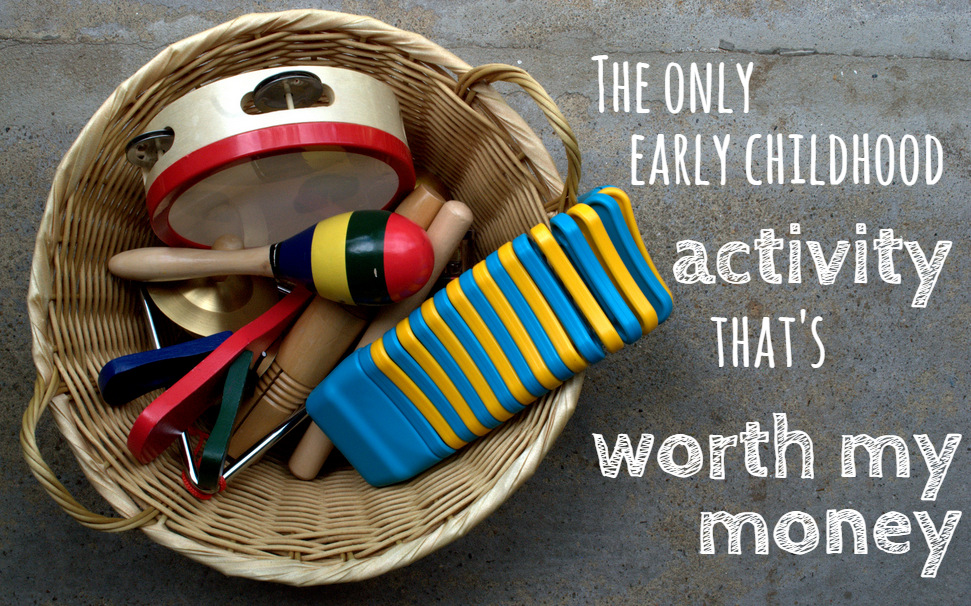“Whose child is this?”
Talk about mortifying parenting moments. This one happened at a sing-a-long story hour at our local library branch. All the other children were sitting placidly on their caregivers’ laps while R, who was probably around a year old at the time, had walked straight up to the front of the room.
He wasn’t misbehaving — at least, I hadn’t thought so — just hanging out a few feet away from the woman leading the program.
All the same, the woman brought the songs and stories to a grinding halt and told me, “you need to come get him.”
Later that day, my friends commiserated with me, then invited us to a different program at a different library.
After a few months of trying to corral my kid at that story hour, I gave up.
Even now, R is only two. I have no idea whether to blame upbringing, temperament, or faulty neurochemistry. Or a kids’ program with developmentally inappropriate expectations.
What I do know: thinking (or saying) “all the other kids his age can handle it” helps no one.
We did eventually find an activity that works for us. If you have a kid between zero and five, it may work for you, too.
It’s called Music Together, and it’s the only kids’ activity that’s been worth my money.
Many of my parent friends say things like, “[the library sing-a-long story time] is just like Music Together, except it’s free.” It’s not. Mother Goose on the Loose style programs bear some similarities to Music Together, but perhaps the most important difference is this:
Music Together is research-based, kid-focused, and there are no expectations of the children.
Not that they sit down, not that they dance at the appropriate time, not that they even stay in the circle with the other parents and kids.
The only expectations and rules are for the parents.
We sit in a circle, sing, and participate in the activities. We refrain from using our speaking voices and communicate only with music and singing. We model for our children and have faith that they are absorbing what’s going on and will join us when and how they’re ready.
The crazy thing is, they do. Just like author and parenting expert Vicki Hoefle promises us in Duct Tape Parenting, the fewer overt attempts we make to control our kids’ behavior, the more they’ll impress us.
Music Together is the only structured activity I’ve encountered that promotes a non-interventionist policy with the kids. Unless they’re being unsafe or unreasonably disruptive (e.g. screaming or running), parents are supposed to just let them do their thing.
For a while, I thought Music Together would fail us, too — or we’d fail it. R spent most of the class climbing under a side table or sitting on a long bench in the back of the room. Our teacher told me to give him time.
Then, one day, he came over and sat in my lap. He walked up and engaged with the teacher, smiling and dancing. He started singing the songs at home.
My hard work and patience had paid off.
I know there’s an argument that kids need to learn certain skills: how to sit still, how to stand in line, how to listen attentively. I’m committed to helping my child do all those things. What I won’t do is force him to practice those skills for their own sake, in an environment that feels unnecessarily restrictive. I’ve stopped looking at the other kids and started looking at the environment and expectations — from my toddler’s perspective.
If you have a kid between birth and age five and you’re sick of reminding him what to do during activities that are supposed to be fun, look up Music Together. Don’t be shy if your child has special needs. The program welcomes and includes them, and even lists tips for a successful class experience with your child. If there’s a class in your area, ask about dropping in for a free trial. Many programs will let you observe a session before you commit.
Parents with young children: what has been your experience with activities and educational programs? What has worked for you? What hasn’t?
Hey there! Are you enjoying The ADHD Homestead?
Here's the thing: I don't like ads. I don't want to sell your attention to an advertising service run by the world's biggest data mining company. I also value my integrity and my readers' trust above all, which means I accept very few sponsorships/partnerships.
So I'm asking for your support directly. For the cost of one cup of coffee, you can help keep this site unbiased and ad-free.
Below you will find two buttons. The first lets you join our crew of Patreon pals and pledge monthly support for my work. Patrons also have access to my Audioblogs podcast. The second takes you to a simple donation page to pledge one-time or recurring support for The ADHD Homestead, no frills, no strings. Do whichever feels best for you!



